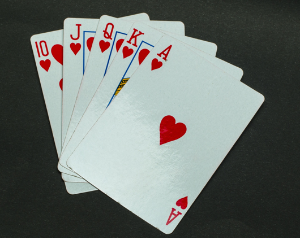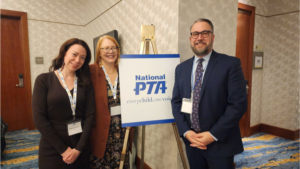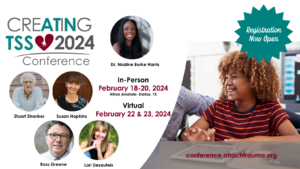Recap
In last week’s post, I introduced the idea of the AAA student: Amygdala Always in Action. I referred to Dan Siegel and Bruce Perry, among others, for their work on the effects trauma can have on the brain. And I talked about the need for a massive paradigm shift, the kind that involves putting on our scuba gear and doing deep work alongside our AAA students.
Loving our AAA students
This week, as promised, I want to talk about the kind of love our AAA students need, the kind Ross Greene, Edward Hallowell, and Bryan Post describe.
Ross Greene
In Raising Human Beings, Greene clearly states what all of us need to hear:
“Kids do well if they can.”
“Your child would prefer to be doing well.”
“Good parenting means being responsive to the hand you’ve been dealt.”
Notice a recurring theme here? Remember, you can’t play bridge with an Old Maid deck.
Edward Hallowell
The title of Hallowell’s book, Superparenting for ADHD, suggests right away that this man “gets it.” When you get into the text, you know he does. He writes:
“Love is the single most powerful tool you can use. . . . It doesn’t do the whole job, but without it the job never gets done right. . . . Keep your faith in love. Don’t give up on your child or on the power of love. . . .”
“But there’s a catch: they’re not every minute of every day all that easy to love. Nonetheless, it is love, wise love, smart love, persistent and unremitting love that they need, first and foremost. . . .”
“For love to do its transformative work – and nothing is more transformative of humankind than love – it must not be blind. It must see clearly and be brave. Through the eyes of this love, you will see without illusion the child you actually have, as opposed to the child you always wanted or wished you had, and you love that child. . . . it is important before all else that you see not the perfected version of that child or the version you might like to behold, but the actual child, the ragtag child who’s reaching out to you, the child who needs more than anything to be known and loved for who she or he truly is.”
“This is in no way to say that if your child is struggling or if your child gets into major trouble, it’s your fault because you haven’t loved him enough or loved him right. Not at all. Some children will struggle no matter what. They are born with such problems that no one is able to make them all better. But to give them their best shot, rely on love above all else – love adeptly and creatively applied, love consistently and abidingly offered, love wisely and enthusiastically held out and always felt, even when you’re sad, angry, disappointed, or hopeless. . . .”
Bryan Post
My main resource is pretty much anything from Bryan Post (his book with Heather Forbes, Beyond Logic, Consequences, and Control, along with ATN training, was for many years the single most important parenting tool I had). I especially love this quote from Bryan’s adoptive mother, Opal Post, in the introduction to From Fear to Love:
“Never give up on your child – no matter what might happen and what you might go through. As long as God gives us air in the sky to breathe, there is hope.”
From Fear to Love is a tremendous resource for parents and teachers. You might also want to give it to those standing on the sidelines who want to get in the game with you.
“We live in a broken world where broken things happen.”
These words from Lisa Terkeurst remind us of what we may know all too well. If we have been trained in attachment and trauma, we know that our kids need this kind of love. At the same time, we live in a world full of broken brains, broken families, and broken homes. These things, plus broken classrooms and broken teachers, lead to broken schools. Some teachers fail (or believe they have failed) because they have given everything and still cannot “succeed.” Other teachers fail right at the outset because they cannot or will not try. Maybe their own wounds hold them back; maybe something else does. And of course we can say the same thing about parents.
We have to accept that there may be no happy ending. We do the best we can (sometimes screaming inside), even when that “best” is quite bad. And we must forgive ourselves for not being able to heal or move forward with our AAA students the way others do, especially those with non-AAA kids. Remember, we are playing with a different deck. Sometimes progress for us is just the advancement of time. With our deck, making it from one day to the next counts as sweet victory.
I sometimes feel hopeless and discouraged, but if I reactivate that paradigm shift and move forward in love, I can play the hand I’ve been dealt. . . and win.




